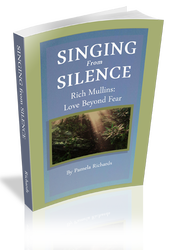
When we remember, we find ourselves again mourning the loss of a brighter
world, the one we thought we lived in just moments before the accident, or the
battle, or the rape, or the disaster, or the domestic abuse.
During the trauma, we find ourselves unequipped to cope with the realities that face us both in our newly broken worlds and newly broken hearts.
Afterwards, instead of confronting memories of the experience to discover there a meaning that resonates in our hearts and speaks to our lives, we tend to avoid thinking about the event that caused us so much suffering, just as we avoid moving our bodies in ways that cause pain after an injury.
While we may effectively block memories of trauma from our consciousness, they still lie like scars on our souls, waiting to be wakened instantly in reponse to a painful touch. And because they remain unresolved, when those memories awaken, we re-live not their resolution, but the destructive impact they have had on our lives. No wonder we often find ourselves living as long as we can in a world of blunted feeling in an attempt to avoid the suffering. Often, we need time to grow in strength--or for our circumstances to
change--before we attempt the work of healing directly.
The past shows us a more perfect world, one that has been shattered and lost:
The present shows us ongoing repeated pain in response to our loss:
The future shows us little hope of healing unless we can learn to view our lives and these memories through eyes that see beyond time altogether.
Some of us find ourselves telling our stories in order to bring these moments of darkness into the light; whether to a therapist, through metaphor, in the form of writing either a journal or a memoir. All of these approaches deserve our respect. All of those who find the strength to confront traumatic memories are facing a
great challenge with great courage. Setting our traumatic events into a brighter view of the world, one far greater than our worst memories reveal, is a critical step on the path leading to increasing faith, hope, and love.
I gratefully acknowledge the conversations with Rodney A. Ellis, Ph.D., whose understanding of the process of healing traumatic memories led in turn to this series of PTSD Awareness posts.

 RSS Feed
RSS Feed